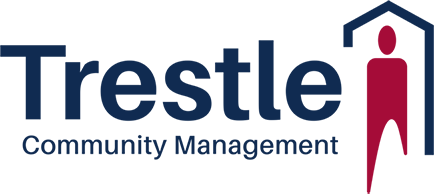Community Association Banking and FDIC Limits
Trestle has exclusively served Community Associations in the greater Puget Sound area since 2007, deploying best-practice processes, utilizing state-of-the-art technologies, and relying on the unsurpassable skills of our staff to take care of our Clients and their properties. We understand the importance of protecting its Client Associations and their assets.
As such, we work with community association banking experts who provide products designed to meet the needs of Homeowner (HOA) and Condo (COA) Associations. We prioritize staying within the FDIC limit and utilizing programs like Certificate of Deposit Account Registry Service (CDARS) and Insured Cash Sweep (ICS) to provide additional protection our Client Associations.
Understanding FDIC Limits

The FDIC limit is the maximum amount of money that the Federal Deposit Insurance Corporation (FDIC) insures per depositor, per insured bank, for each account ownership category. As of 2023, this limit is $250,000 per depositor. Staying within this limit is important because it ensures that our Clients’ deposits are protected in the event of a bank failure.
We review bank balances each month to ensure that our Clients’ deposits are always protected. When Associations near the FDIC limit, we encourage them to utilize other banking options such as CDARS, a program that allows depositors to access FDIC insurance on multi-million dollar deposits through a network of member banks.
Benefits of the CDARS Program
When our Clients participate in the CDARS program, their funds are distributed across multiple Certificates of Deposit (CDs) at different banks, but they only have to deal with one bank for all their CDARS-related transactions. This is incredibly convenient for Associations, as they do not have to worry about managing multiple accounts at different banks.
In addition to this convenience, CDARS also helps Communities stay within the FDIC limit. Each CD is insured up to $250,000, allowing Associations to deposit large amounts of money and still have their funds fully protected by the FDIC. This is particularly beneficial for Community Associations as they often have large cash reserves that exceed the FDIC limit.
Benefits of the ICS Program
Another program we utilize to protect our Clients’ deposits is Insured Cash Sweep (ICS). Like CDARS, ICS is a program that allows depositors to access FDIC insurance on deposits over $250,000. However, instead of distributing funds across multiple CDs, ICS deposits funds into demand deposit accounts (DDAs) that are then swept into interest-bearing savings accounts at multiple banks within the ICS network.
This extends multi-million dollar FDIC insurance on deposits, providing an additional layer of protection for Association funds. It also allows us to provide our Clients with a competitive rate of return on their deposits, as the interest rates on ICS accounts are typically higher than those on traditional savings accounts.
Benefits of Community Association Banks
For Associations, the benefits of CDARS and ICS accounts are significant. These programs provide an additional layer of protection for their funds, particularly large cash reserves that exceed the FDIC limit. They also simplify cash management by consolidating funds with one bank or through a network of banks.
In addition to these benefits, CDARS and ICS accounts allow Associations to earn a competitive rate of return on their deposits. This is important for Associations, as they often rely on their cash reserves to fund operations or make investments. By earning a higher rate of return on their deposits, Associations can generate more income and potentially increase their financial stability over time.
We understand the importance of protecting our Clients’ assets and ensuring their financial security. This is why we prioritize staying within the FDIC limit and utilizing programs like CDARS and ICS to provide additional protection for our Clients’ deposits.
Connecting with Trestle
To learn more about the ways Trestle prioritizes its Clients, please visit our website, view our latest posts on LinkedIn, Facebook, and Twitter or call us at (425) 454-6404.



